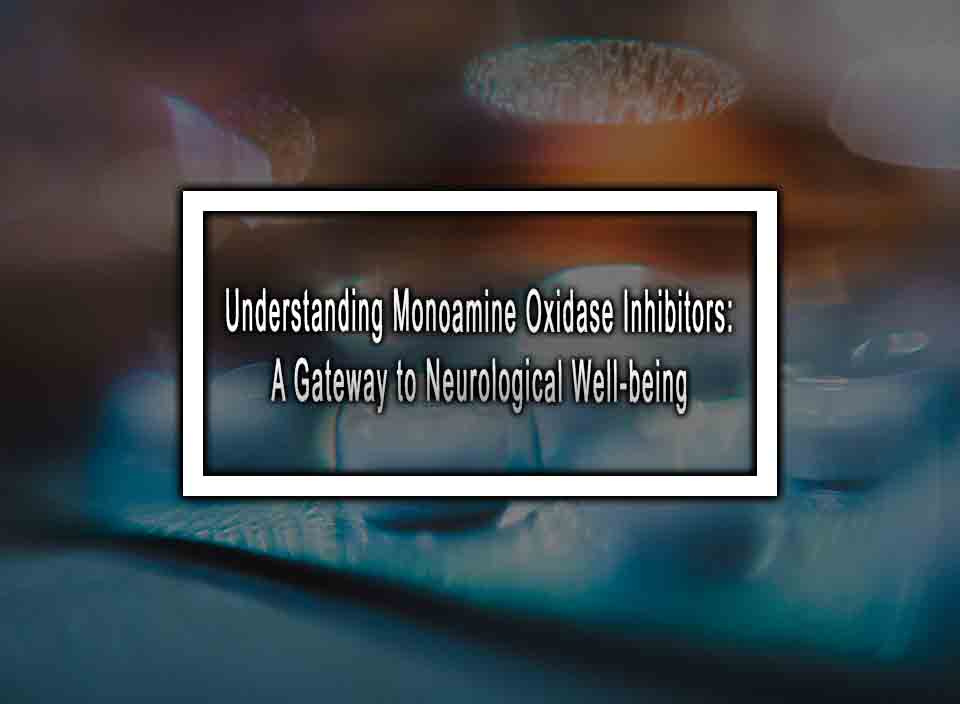Table of Contents
ToggleUnleashing The Power of Monoamine Oxidase Inhibitors: Unraveling Their Neurological Wonders
Discovering effective treatments for various neurological disorders has always been a paramount challenge. However, one class of drugs, known as Monoamine oxidase inhibitors (MAOIs), has emerged as a potential game-changer. MAOIs have shown remarkable results in managing conditions such as depression, anxiety, and Parkinson’s disease, offering hope for those affected by these conditions. In this article, we delve into the realm of MAOIs, exploring their mechanism, benefits, and potential side effects, all whilst shedding light on the immense therapeutic potential they possess.
The Wonders of MAOIs: A Panacea for Neurological Disorders
Monoamine oxidase inhibitors (MAOIs) are a class of drugs that work by inhibiting the activity of an enzyme called monoamine oxidase. This enzyme breaks down neurotransmitters such as dopamine, serotonin, and norepinephrine, leading to an imbalance in the brain’s chemical signals. By targeting and inhibiting monoamine oxidase, MAOIs effectively restore the balance of these crucial neurotransmitters, thereby promoting neurological well-being.
MAOIs and Depression: Bridging the Gap to Happiness
Depression, a vastly prevalent mental health condition, has historically been challenging to treat effectively. However, MAOIs have emerged as a promising option for individuals whose depression does not respond to other classes of antidepressants. By enhancing the levels of serotonin, dopamine, and norepinephrine in the brain, MAOIs help alleviate the symptoms of depression, boosting mood, and overall emotional well-being.
Coping with Anxiety: MAOIs to the Rescue
Anxiety disorders often involve an imbalance of neurotransmitters, leading to excessive worry and fear. MAOIs have proven to be effective in managing anxiety disorders by improving the levels of neurotransmitters like serotonin. With their anxiolytic properties, MAOIs provide individuals with a new lease on a calmer and more balanced life.
Conquering Parkinson’s Disease: MAOIs as Potential Champions
Parkinson’s disease, a degenerative neurological disorder, can significantly impact a person’s quality of life. MAOIs, with their neuroprotective effects, have been explored as a potential therapy for managing this debilitating condition. By delaying the breakdown of dopamine, an essential neurotransmitter affected in Parkinson’s disease, MAOIs help alleviate symptoms such as tremors, rigidity, and bradykinesia, providing hope for Parkinson’s patients.
Conclusion
Monoamine oxidase inhibitors (MAOIs) have proven to be valuable assets in the realm of neurological and mental health disorders. From their incredible ability to restore neurotransmitter balance to their potential to alleviate symptoms of depression, anxiety, and Parkinson’s disease, MAOIs are shaping the future of neuropharmacology. However, it is crucial to note that MAOIs can have side effects and should only be taken under proper medical supervision. As further research unravels the potential of MAOIs, they hold the promise of transforming lives and offering renewed hope to individuals battling these challenging conditions. Embrace the wonders of MAOIs and unleash the power of neurological well-being.
Monoamine Oxidase Inhibitors FAQ
Here are the most common questions about monoamine oxidase inhibitors.
1. What conditions are Monoamine Oxidase Inhibitors commonly used to treat?
MAOIs are typically prescribed for major depressive disorder, but they can also be used to treat other conditions such as bipolar disorder, panic disorder, and social anxiety disorder. Some MAOIs are also used to manage symptoms of Parkinson’s disease.
2. How effective are Monoamine Oxidase Inhibitors in treating depression?
MAOIs can be highly effective in treating depression, especially for individuals who have not responded well to other types of antidepressant medications. However, they have usually considered a last resort treatment option due to the potential for serious side effects and interactions with certain foods and medications.
3. What are the common side effects of MAOIs?
Common side effects of MAOIs can include dizziness, drowsiness, constipation, dry mouth, blurred vision, and sexual dysfunction. More serious side effects can occur, such as hypertensive crisis (a dangerous increase in blood pressure) if certain foods or medications are consumed while taking MAOIs.
4. Are there any dietary restrictions while taking MAOIs?
Yes, there are significant dietary restrictions while taking MAOIs. These medications can interact with certain foods and beverages that contain a substance called tyramine. Consuming tyramine while taking MAOIs can lead to a sudden and dangerous increase in blood pressure. Examples of foods and beverages to avoid include aged cheeses, cured meats, fermented foods, and certain types of alcoholic beverages.
5. How long do MAOIs take to start working?
MAOIs typically take several weeks to start working and may require dosage adjustments during this time. It is important to be patient and follow the prescribed treatment plan, as it may take some time to see the full benefits of the medication.












